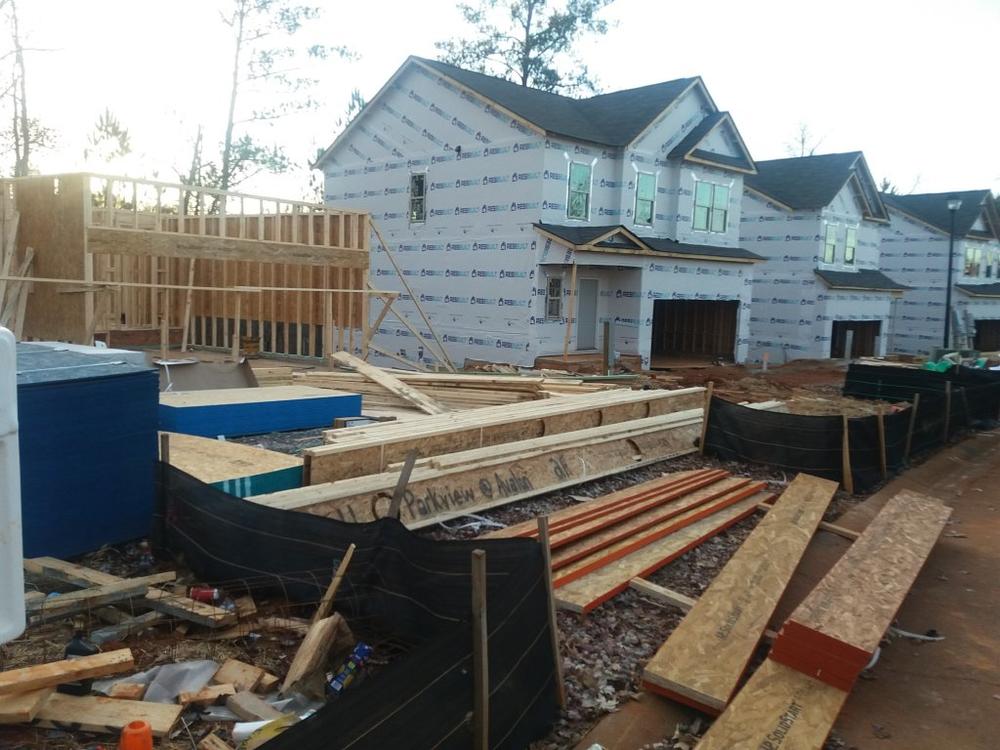
Caption
A report from Georgia’s Public Policy Foundation and home builders association says that while workforce shortages and the cost of building materials receive a lot of discussion about the rising price of homes, their study demonstrates the significance of government regulations, In this 2019 file photo, new homes are under construction in McDonough.
Credit: Stanley Dunlap/Georgia Recorder

